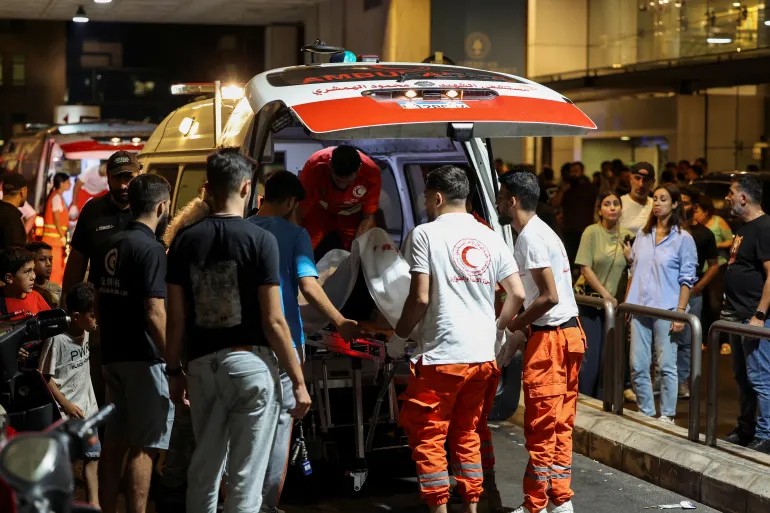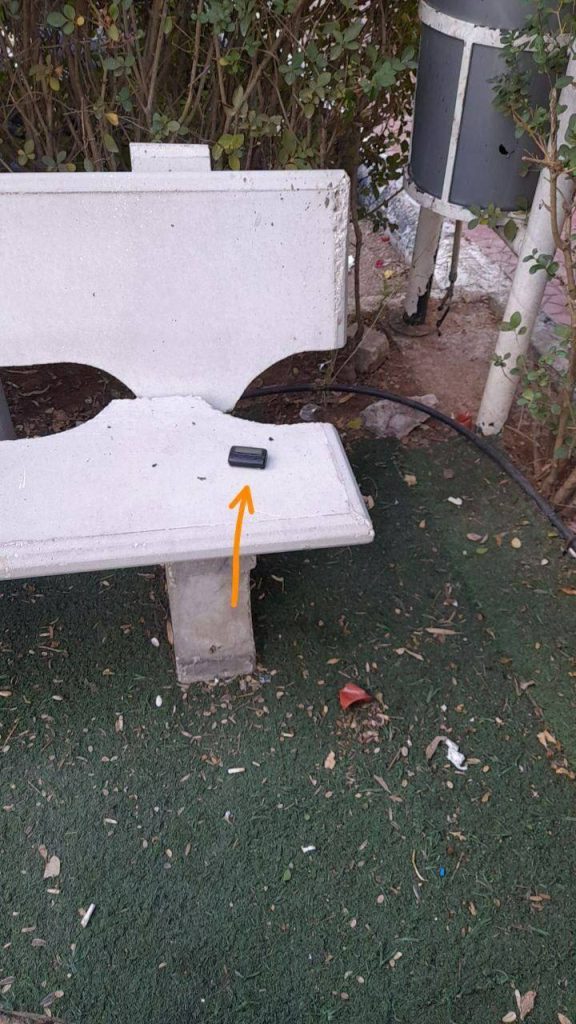In the latest wave of violence to strike Lebanon, at least 20 people have died, and over 450 have been injured following a series of devastating explosions in Beirut, southern Lebanon, and the Bekaa Valley. These explosions, which targeted wireless communication devices used by Hezbollah, have plunged Lebanon further into turmoil, sparking fears of a larger military escalation in the region.
The blasts occurred amidst mounting concerns about Hezbollah’s growing role in regional conflicts, particularly as tensions between Israel and its northern neighbors intensify. Hezbollah, a powerful militant group backed by Iran, has been a key player in Lebanon’s military and political landscape, often seen as a counterbalance to Israeli forces in the region. These explosions, which Hezbollah blames on Israel, have added to the already volatile situation.
A Calculated Strike on Hezbollah’s Communication Network
The explosions took place in Hezbollah’s strongholds, including southern suburbs of Beirut and the Bekaa Valley, as well as during funerals for some of the victims of previous blasts. Walkie-talkies and other communication devices, reportedly purchased by Hezbollah months ago, were the primary targets of the attacks, according to multiple sources. Hezbollah has accused Israel of infiltrating its communication network, with reports suggesting that Israeli intelligence services may have planted explosives inside these devices.
Lebanon’s Health Ministry has confirmed that the explosions killed at least 20 people, with over 450 suffering injuries, many of them severe. The Red Cross and local hospitals have been overwhelmed, with medical staff describing the injuries as catastrophic, ranging from loss of limbs to critical damage to the eyes and brain. One ophthalmologist at a Beirut hospital stated that a significant percentage of the injured had lost at least one eye, further highlighting the devastating impact of the blasts.
Israel’s Alleged Role and the Growing Threat of War
While Israel has not officially commented on the attacks, its involvement is widely suspected, particularly given the strategic importance of Hezbollah’s communication network in its ongoing military operations. The blasts came shortly after Israeli Defense Minister Yoav Gallant announced a “new phase” in Israel’s ongoing conflict with Hezbollah, indicating a potential shift in military tactics.
Hezbollah has been a long-standing adversary of Israel, and tensions between the two entities have escalated in recent months, fueled by Hezbollah’s support for Hamas in the Gaza conflict. Israel has consistently accused Hezbollah of posing a major threat to its security, particularly in southern Lebanon and the Golan Heights, areas that have seen repeated cross-border attacks in recent weeks.
The recent explosions, occurring in rapid succession and targeting Hezbollah’s communication infrastructure, have been interpreted by many analysts as a pre-emptive strike by Israel, aimed at weakening Hezbollah’s ability to coordinate its military activities. Hezbollah has responded by vowing retaliation, with its leader Hassan Nasrallah expected to deliver a speech outlining the group’s next moves.

Hezbollah’s Communication Network: A Strategic Vulnerability?
The targeting of Hezbollah’s communication network has exposed a potential vulnerability in the group’s military infrastructure. Wireless communication devices, such as pagers and walkie-talkies, are critical for Hezbollah’s coordination of military operations, and their compromise could severely hinder the group’s ability to function effectively in the face of an Israeli offensive.
According to reports, the devices in question were purchased by Hezbollah earlier this year as part of an emergency communication system designed for use in times of war. Israeli intelligence services are believed to have infiltrated this system, planting small amounts of explosives inside the devices, which were then remotely detonated.
Lebanon’s state-run National News Agency (NNA) has identified the devices as ICOM-V82 handheld radios, a now-discontinued model manufactured by Japanese electronics company ICOM. The NNA reports that some of the explosions occurred inside shops selling communication devices, further fueling speculation that the devices had been deliberately booby-trapped.
Civilian Casualties and Widespread Destruction
The human toll of the explosions has been devastating. Many of the victims were civilians, caught in the blasts during funerals and other public gatherings. Children were among the dead and injured, with at least two young victims confirmed to have been killed by the blasts.
Medical professionals have described the scene in hospitals as chaotic, with emergency rooms overwhelmed by the sheer number of casualties. Doctors have reported seeing injuries consistent with shrapnel blasts, including severe burns, amputations, and traumatic brain injuries.
Dr. Elias Warrak, an ophthalmologist at a Beirut hospital, described the day as the worst of his career. “The damage is humongous,” he said, noting that many of the injured had suffered permanent eye damage. Warrak’s hospital has treated dozens of patients with eye injuries, and he fears that the long-term effects of the blasts will leave many permanently disabled.
International Reactions and Calls for Restraint
The explosions have drawn international attention, with world leaders calling for restraint and warning of the potential for further escalation. UN Secretary-General António Guterres expressed deep concern over the violence, warning of the “serious risk of a dramatic escalation” in the region. He called on all parties involved to exercise maximum restraint and work towards de-escalation.
The explosions come at a time of heightened tensions in the Middle East, following months of cross-border fighting between Israel and Hezbollah, as well as the ongoing war between Israel and Hamas in Gaza. The situation in Lebanon is seen by many as a potential flashpoint for a wider conflict, with the risk of a full-scale war growing with each passing day.
The Strategic Significance of Southern Lebanon
Southern Lebanon has long been a flashpoint in the Israeli-Hezbollah conflict, with the region serving as a key stronghold for Hezbollah’s military operations. Hezbollah has used southern Lebanon as a base for launching rocket attacks on Israel, and the area has been the site of numerous skirmishes between Israeli and Hezbollah forces over the years.
The redeployment of an Israeli army division to the north, as announced by Defense Minister Gallant, suggests that Israel is preparing for a potential escalation in the conflict with Hezbollah. Israeli military officials have stated that they are closely monitoring Hezbollah’s activities in southern Lebanon and the Golan Heights, and are ready to respond to any further provocations.
Hezbollah, for its part, has vowed to continue its attacks on Israeli forces, with its leadership stating that the group will not cease its military operations until the conflict in Gaza is resolved. Hezbollah’s support for Hamas, which is also backed by Iran, has further complicated the situation, as both groups share a common goal of resisting Israeli occupation.

The Road Ahead: Escalation or De-escalation?
The situation in Lebanon remains fluid, with the possibility of further explosions and attacks looming large. Hezbollah’s leadership has indicated that it will not back down in the face of Israeli aggression, and Israel has made it clear that it will not tolerate continued attacks on its northern border.
As the conflict escalates, the risk of a full-scale war between Israel and Hezbollah grows. Such a war would have devastating consequences for Lebanon, a country already reeling from economic collapse and political instability. The Lebanese government has been largely unable to contain the violence, and the international community has called for immediate action to prevent further bloodshed.
In the coming days, all eyes will be on Hezbollah’s leader, Hassan Nasrallah, who is expected to outline the group’s next steps in his upcoming speech. Nasrallah’s words will likely provide insight into whether Hezbollah intends to escalate the conflict or seek a temporary ceasefire.
A Nation on the Brink
The explosions in Lebanon mark a dangerous new phase in the ongoing conflict between Israel and Hezbollah. As both sides gear up for potential further military action, the situation remains perilous, with the lives of countless civilians hanging in the balance.
The international community has called for restraint, but with tensions running high, it remains to be seen whether cooler heads will prevail. For now, Lebanon remains a nation on the brink, facing the dual challenges of internal strife and external aggression. The road ahead is uncertain, and the consequences of continued violence could be catastrophic for the region.



